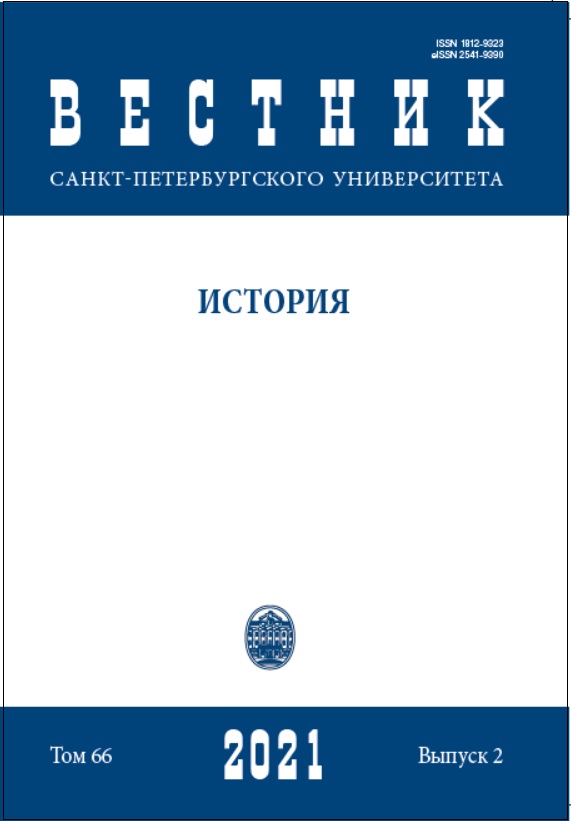Messages of the President of the Russian Federation to the Federal Assembly as a Source of Studying the Historical Policy of Russia
DOI:
https://doi.org/10.21638/spbu02.2021.206Abstract
The purpose of this study is to reconstruct the historical representation of the highest state power in modern Russia (the level of the president) by examining the texts of the presidential messages to the Federal Assembly from 1994 to 2020. As a key research method, content analysis, both semantic and quantitative, was applied. We studied fragments of messages containing an appeal to events, phenomena, personalities of the past and the historical process as a whole. As part of the quantitative analysis, the use of the word “history” and the total textual volume of historical references in the Messages was calculated. The thinkers of the past quoted by the Presidents associated with various ideological connotations were considered as a special indicative position. The generalized content analysis data are accumulated in the author’s table, which has the potential for further independent use in studying the dynamics of power discourse in Russia. The results of the study allow us to confirm the fact of the paradigm shift in the perception of history at the highest state level in Russia, consisting in the transition from the liberal version of the theory of modernization to a nationally conservative approach close to the theory of civilizations. Three Presidents of the Russian Federation - B.N. Yeltsin, D.A. Medvedev and V.V. Putin, despite the coincidence of positions on several issues of coverage of the past, presented in the texts of the messages a different vision of the historical process. The integration of the current policy into the general outline of history distinguished all the messages, making it possible to talk about preserving the tradition of historiosophical interpretation of state activity in the Russian Federation, despite different versions of historiosophy. The transformation of historical politics in Russia is an indicator of the ideological inversion of the Russian state as a whole, the transition from a liberal to a nationally conservative model. The attitude to the history of the authorities reveals the potentials of using, as a means of reconstruction, the value-semantic guidelines of current policy.
Keywords:
ideology, public policy, national memory policy, historical representation, content analysis, theory of modernization, national conservative approach, Yeltsin, Medvedev, Putin
Downloads
Downloads
Published
How to Cite
Issue
Section
License
Articles of "Vestnik of Saint Petersburg University. History" are open access distributed under the terms of the License Agreement with Saint Petersburg State University, which permits to the authors unrestricted distribution and self-archiving free of charge.





